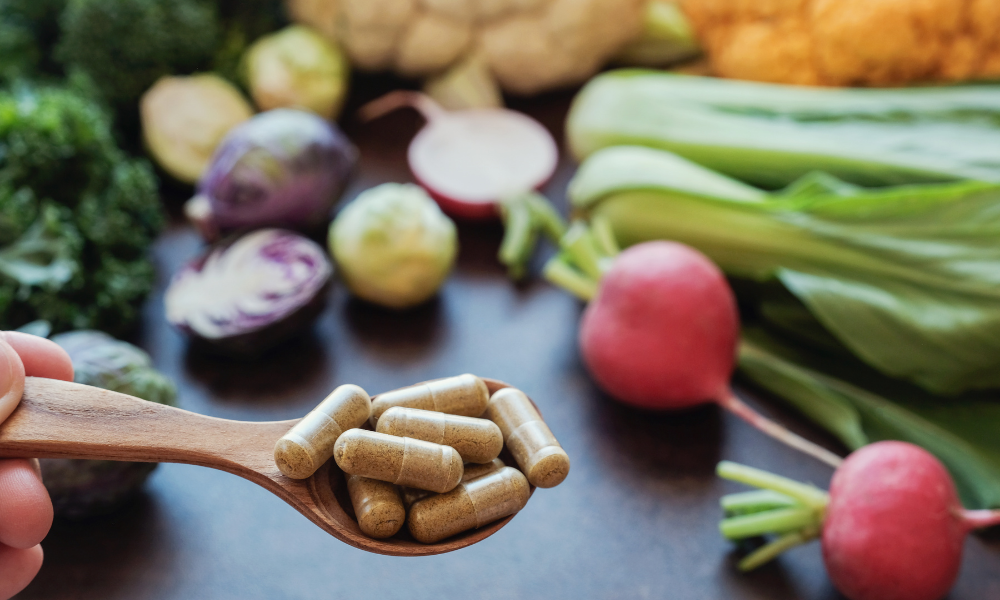8 Supplements to Reduce Inflammation

Trauma, illness, and stress can result in inflammation. Lifestyle habits and unhealthy foods can also cause it. The best way to cure it without any side effects is anti-inflammatory foods, adequate sleep, exercise, and stress management.
Getting additional support from supplements may also be useful as well. Certain dietary supplements have anti-inflammatory properties. Here are 8 supplements that have been shown to reduce inflammation in the body.
Fish Oil
Fish oil contains omega-3 fatty acids, which are good for health. Two especially beneficial types of omega-3s are eicosapentaenoic acid (EPA) and docosahexaenoic acid (DHA). They decrease the inflammation associated with cancer, heart disease, diabetes, and many other diseases.
Its anti-inflammatory effect reduces cytokines in the body and promotes gut health. It may also decrease the inflammation and muscle damage that occur after exercise.
Buy Burpless Capsules on Amazon
Alpha-Lipoic Acid
Alpha-Lipoic Acid is a fatty acid that is linked with metabolism and energy production.
Being an antioxidant, it also reduces inflammation. Numerous studies showed that it reduces the inflammation linked with heart disease, insulin resistance, cancer, liver disease, and a lot more.
Turmeric / Curcumin
Turmeric has antioxidant and anti-inflammatory properties. These properties of turmeric come from the chemical curcumin, which is present in turmeric.
Curcumin blocks certain cytokines and enzymes that cause inflammation. A small study was conducted in 2012 proves that it is a potent anti-inflammatory supplement.
Moreover, it helps in faster healing, reduces risks of cardiac diseases, enhances the immune system, osteoarthritis, rheumatoid arthritis, and a lot more.
Buy our favorite supplement: Turmeric Plus
Buy on Amazon
Ginger Root
Ginger is commonly used to treat nausea, morning sickness, and indigestion however, very few people know that it can also reduce inflammation. Major components present in ginger, zingerone, and gingerol reduce inflammation by acting as antioxidants and removing free radicals from the body. These facts are backed up by the scientific study.
Resveratrol
Resveratrol is a potent antioxidant and anti-inflammatory agent found in fruits with purple skin like grapes and blueberries; It reduces inflammation in people with heart disease, insulin resistance, ulcerative colitis, and gastritis.
A study carried out in 2015 proved that it could reduce inflammatory markers in the body.
Spirulina
Spirulina is a type of blue-green algae with potent antioxidants.
With its potent anti-inflammatory effects, it leads to healthier aging and enhances the immune system. It improves the inflammatory markers.
A group of people was given 8g of spirulina for 12 weeks. After 12 weeks, their inflammatory markers were significantly lower than before.
Buy Spirulina Tablets on Amazon You can also find Spirulina in Amazing Grass Green Superfood Super Greens powder.
Glucosamine
Glucosamine is commonly used to treat various types of inflammation.
Although the exact mode of action for glucosamine is still unknown, it has shown remarkable results in reducing inflammation.
A study on 200 people was conducted, which concluded that glucosamine significantly reduces inflammatory markers.
MSM
MSM, also known as methylsulphonylmethane, has anti-inflammatory properties well documented by scientific studies. It inhibits NF-kB, TNF-ɑ, and IL-6, which are linked with systemic inflammation.
Besides its anti-inflammatory effect, it increases the level of glutathione, which is a potent antioxidant.
Some other supplements to reduce inflammation often contain MSM however, if you want to try a good MSM supplement, we love this brand.
Conclusion
These supplements are natural and do not have any side effects; they are very safe to use. Adding them to your diet will only give you benefits, and you will get a healthier lifestyle with less inflammation.
For other tips on how to reduce inflammation visit our page dedicated to reducing inflammation.


